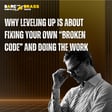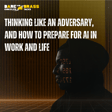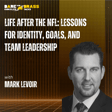
Phish Club is Building a Community for Junior Practitioners
Madeline and Oliver from Phish Club joined the show to talk community building for junior practitioners in cybersecurity.
George K and George A talk to Madeline and Oliver about:
The power of lateral networking - building relationships with peers who will rise together rather than just trying to impress executives
What actually gets you hired - home labs and technical write-ups beat certifications every time
Creating inclusive community - from Discord lounges to bringing non-cyber friends, because networking is networking
The real skills that matter - curiosity in interviews, asking questions, and showing initiative beyond just following documentation
Their approach is simple but powerful: consistency, authenticity, and making sure no one sits alone in the back. The result? A thriving community that's helping practitioners actually connect, learn, and advance their careers together.
------
🏳️🌈 It's PRIDE month! ALL PROFITS from all sales of the Pride collection during the month of June will be donated to scholarships for LGBTQ+ students in cybersecurity.
And this year we have generous vendor sponsors who will match our donation!
Shop swag, help students. You can shop the collection here: https://bkbtpodcast.shop/



















